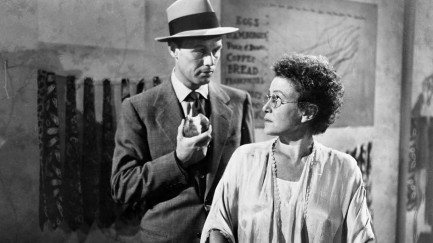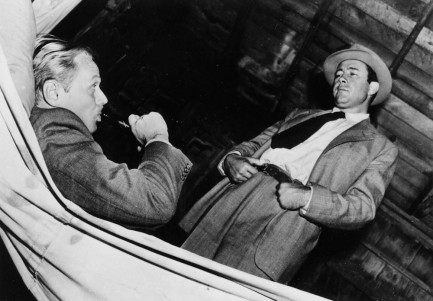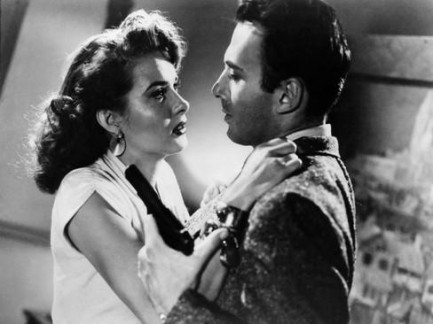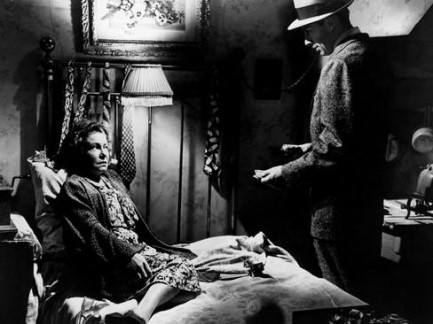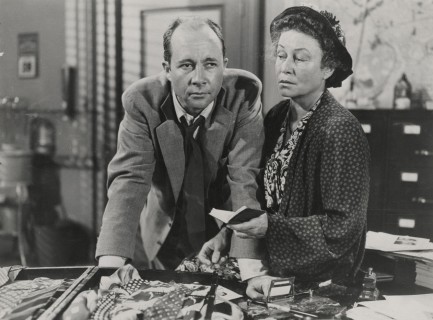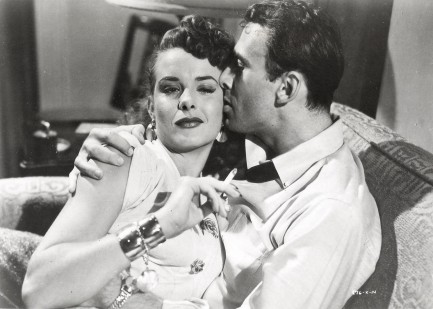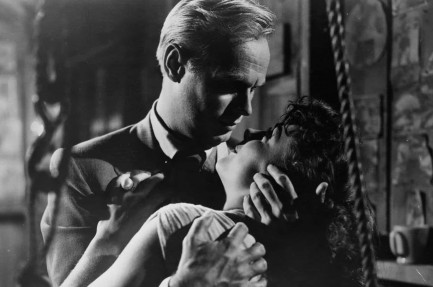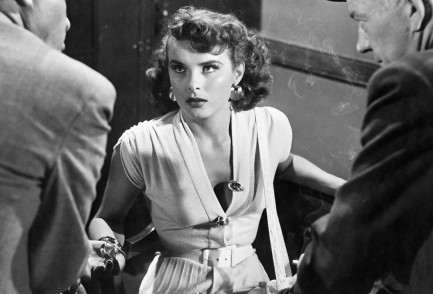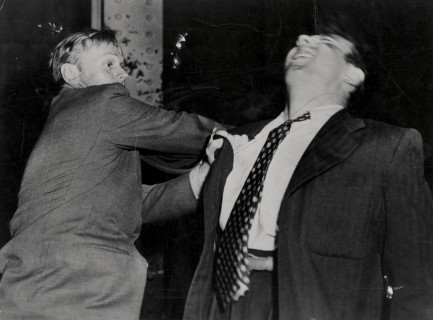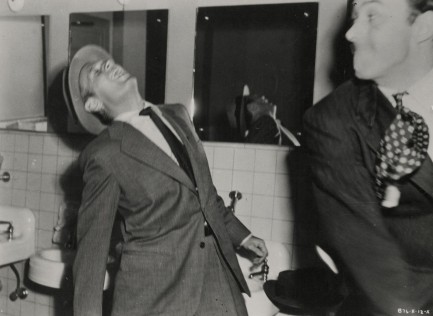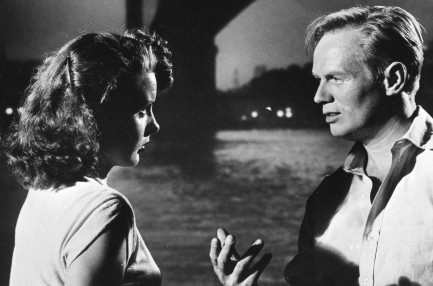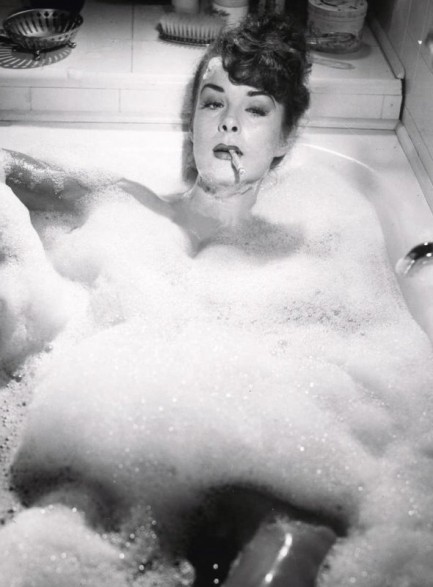| Femmes Fatales | Aug 29 2021 |

I have to dig around in this dank cavern under Twentieth Century Fox to find good scripts, but I always manage.
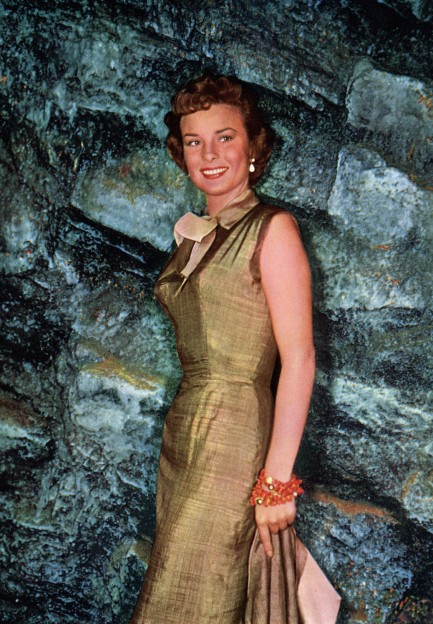
The golden age film studios didn't take kindly to actresses who wanted input into their own careers. U.S. star Jean Peters, who you see above in 1954, had pretty firm opinions about the types of roles she wanted to play. These led to her withdrawing from her planned debut in I Wonder Who's Kissing Her Now, being suspended by Twentieth Century Fox for refusing to appear in Sand, and later Yellow Sky, being replaced in Mr. Belvedere Goes to College, being suspended again for refusing The View from Pompey's Head, and refusing to play sexy roles of any type after her turn as a vixen in the film noir Pickup on South Street.
Yes, Peters was particular, but her hits were notable. Pickup on South Street was spectacular, Forever Amber was a star making turn, and Three Coins in the Fountain was a major success. In 1957 she married Howard Hughes and didn't act again until after divorcing him in the early 1970s. Correlation is not causation, or something like that, but it's too bad she lost those years because she chose to wed a kook. She had a good career by any measure, though. She may have hated playing sexpots but we think she was at her best as the smoldering Candy from Pickup on South Street. Watch it and see if you don't agree.
| Vintage Pulp | Sep 7 2020 |

Live fast, die young, leave a good-looking corpse.
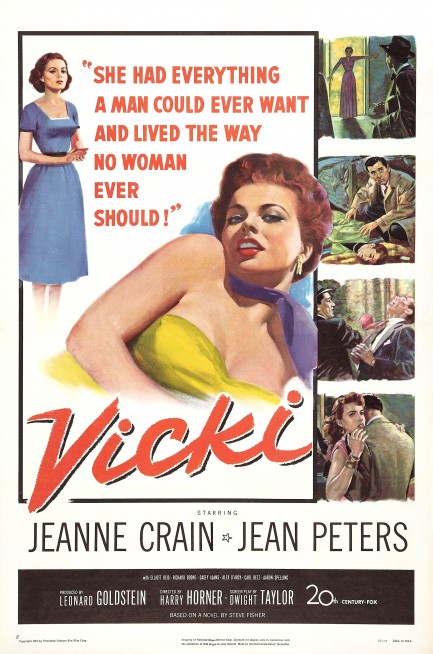
When we saw Jean Peters in 1953's Pickup on South Street, it was our first exposure to her, and we immediately knew we'd be seeking out more of her work later. Last night we watched another film of hers from 1953—the mystery Vicki, which is based on Steve Fisher's 1941 novel I Wake Up Screaming. Peters plays an up and coming New York City model and actress who's found murdered. The rest of the film, told partly in flashback, details her rise from obscurity to celebrated It girl, and the investigation that follows her killing. Jeanne Crain plays Peters' sister who's dedicated to finding the truth, and Richard Boone takes on the unusual role of an emotionally unstable lead detective whose assumptions affect his objectivity.
The movie plays like a partial retread of 1946's Laura, and like Gene Tierney's famed character Laura Hunt, Peters' aspiring superstar Vicki Reed has a profound effect on people even after her death, from broken hearts to poisonous resentment. But Vicki doesn't have the same atmosphere and narrative heft as Laura. Even though it's a mystery, there are no real surprises. Still, we've seen far worse films, and Peters' performance is fine, if not quite as enjoyable as her jaded working class beauty from Pickup on South Street. We recommend that film unreservedly, and Vicki cautiously. It premiered in New York City today in 1953 before going into national release on October 5.
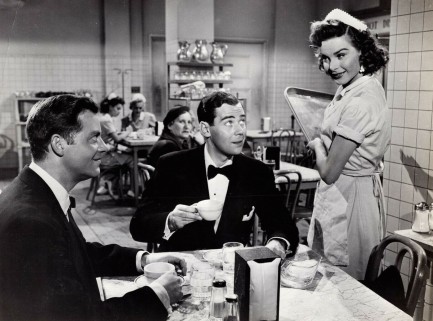
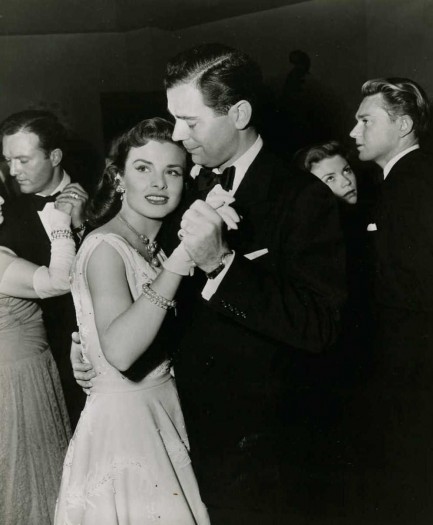
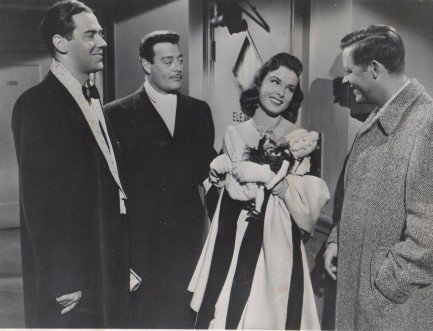
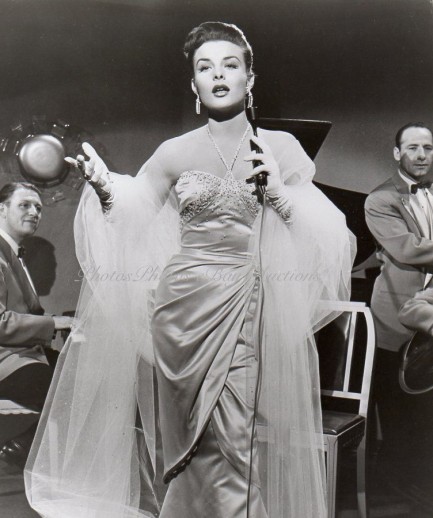
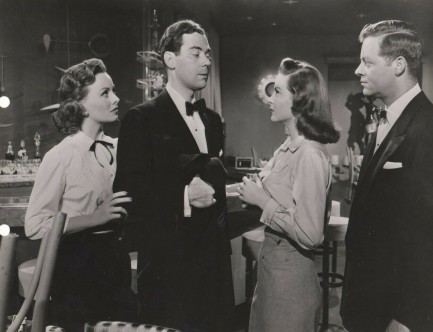
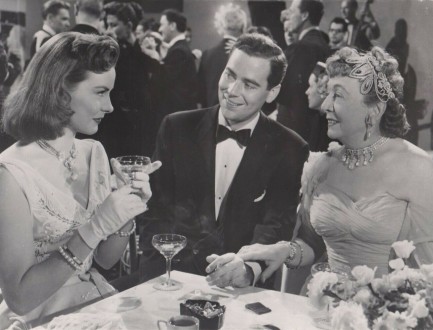
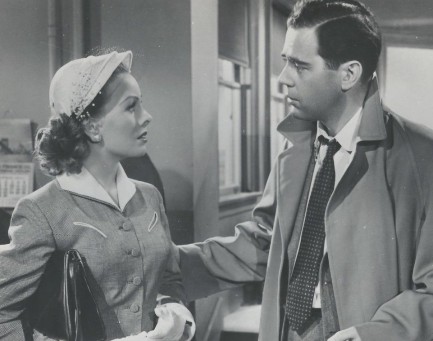
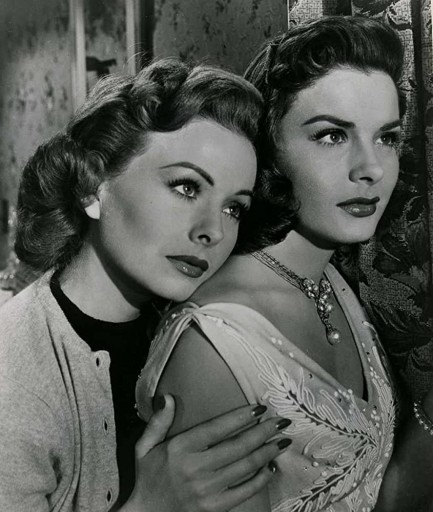
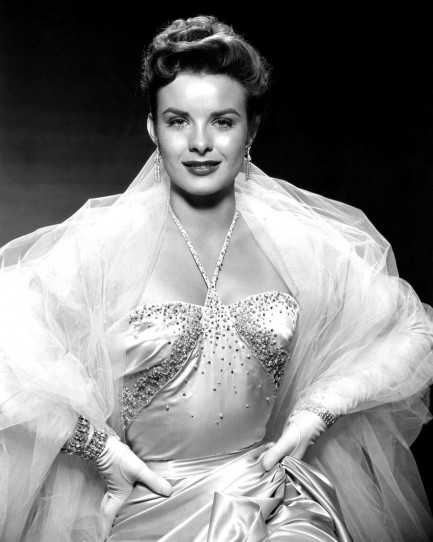
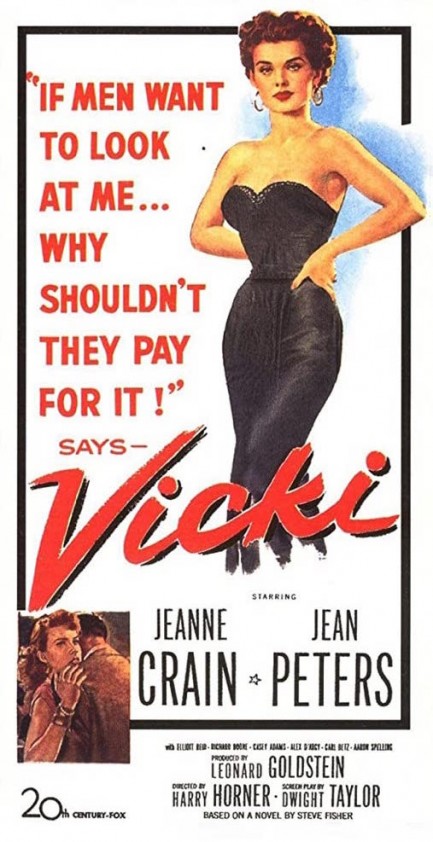
| Vintage Pulp | Apr 7 2019 |

We're hooked on this poster—and the movie too.
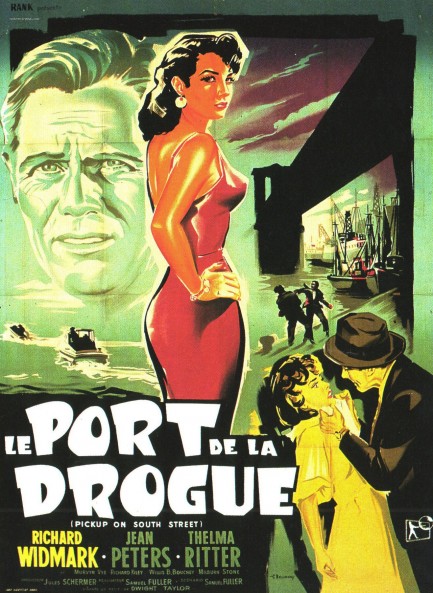
Le port de la drogue was better known as Pickup on South Street, a movie we raved about a little while ago. Its U.S. poster is pedestrian, but this promo for the French market was painted by Constantin Belinsky, and we think it's spectacular. He actually painted two posters, the second of which—not quite as nice because he was asked to copy the U.S. promo—appears below. We'd never heard of Belinsky before but we'll keep our eyes open for more of his work. Pickup on South Street premiered in the U.S. in 1953 and seems to not have made it to France until today in 1961. We aren't sure why it took so long, but the wait was worth it, because the movie is great.
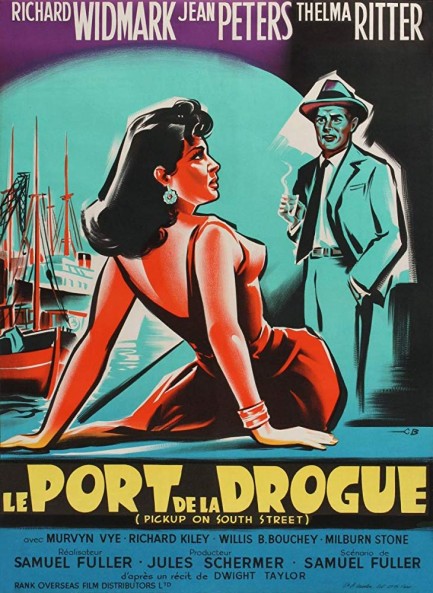
| Vintage Pulp | Jan 27 2019 |

Widmark/Peters noir looks great and packs a punch.
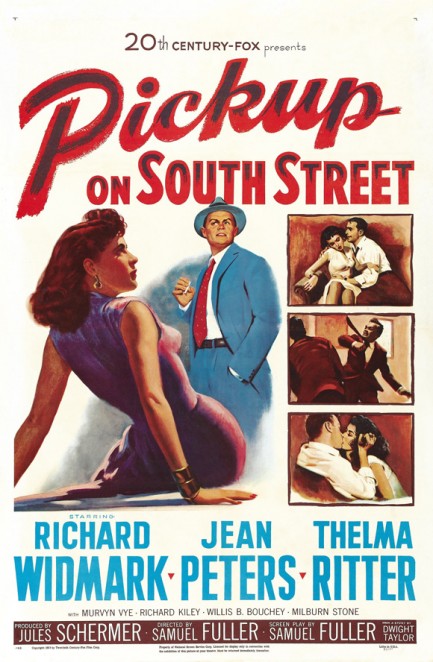
It wouldn't be a film noir festival without at least one anti-commie thriller and Pickup on South Street is it. The movie stars Richard Widmark as a two-bit pickpocket who lifts a wallet during an NYC subway ride and unexpectedly ends up with a priceless government secret meant to be given to commie spies by a cabal of sweaty traitors. Widmark sneers his way into a position where he thinks he can sell the stolen info for fifty grand. He's got another think coming.
Best line: If you refuse to cooperate you'll be as guilty as the traitors that gave Stalin the A bomb!
Well, Stalin had help from spies but we don't think any gave him the bomb like a borscht recipe. He had help on other fronts as well, including from captured German scientists and homegrown Russian knowhow, but this is film noir, so go with it. The good team vs. bad team dynamic continues throughout, and numerous people try to convince Widmark to put his own interests aside and play for the home squad. They're wasting their breath.
The movie co-stars Jean Peters, a good actress and amazing knockout who's been a bit forgotten, even though she was in a few other good films and went on to marry nutball billionaire Howard Hughes. Her opening scene on a humid subway will stick with you. Sadly, she harbors yet another inexplicable film noir infatuation with a male lead who's about as nice as a sack of cold dick tips, but this is film noir so go with it. Ditto for the pushing and slapping Peters endures. She's even knocked cold by Widmark in their initial encounter. Deliberately.
His apology: You okay or did I bust something?
These sly flirtations increase Peters' ardor. The female heart wants what it wants, at least in the minds of wannabe-tough-guy Hollywood screenwriters. That screenwriter would be Samuel Fuller, who actually was acquainted with the underworld from his days as a crime reporter. So it could be that he knew more about gutter love than we do, but we doubt it. Here's what really matters—Peters absolutely kills her role, and does her own stunts too. Thelma Ritter, later of Rear Window, also gets a pivotal turn and nails her part as a tired older lady just trying to get by.
In the end Pickup on South Street comes full circle. While it's about patriotism, and trying to survive in New York City with zero means, and a weird kind of masochistic 1953 infatuation we'll never really understand, it starts with pickpocketing and eventually returns, in a symmetry that feels very modern in screenwriting terms, to that idea for the excellent climax. With Fuller directing and Joe MacDonald handling the cinematography, the final result is a knockout in both senses of the word—looks great, packs a punch.
